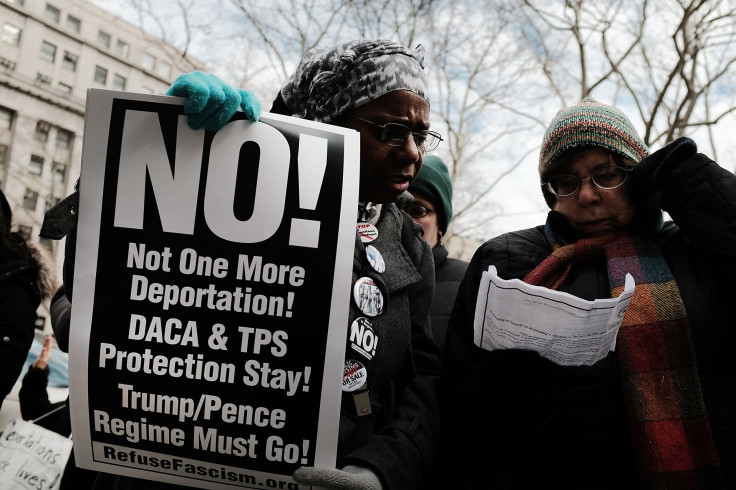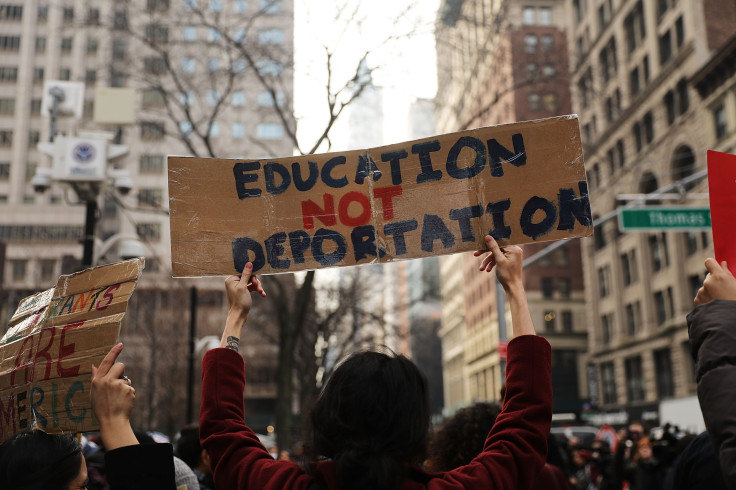Miguel Perez Jr, Army Veteran Facing Deportation, Starts Hunger Strike

A United States Army veteran and green card holder, who lost his appeal to remain in the country because of a felony drug conviction in 2008, began a hunger strike Wednesday to protest his likely deportation. A federal court denied his appeal last week to remain in the U.S., where he has lived since he was 8 years old.
Miguel Perez Jr., 39, a Chicago resident, who served two tours of duty in Afghanistan and recently finished his 15-year prison term on the drug conviction, appealed to remain in the U.S., arguing his life would be in danger if he was deported back to Mexico, where drug cartels reportedly target veterans with combat experience and make them work on their behalf. Perez's sentencing was reduced to half of the 15-year term after he pleaded guilty to the drug charge.
A three-judge panel for the 7th U.S. Circuit Court of Appeals rejected his argument last week. Perez was fighting deportation for nearly five years after he mistakenly thought his military career and oath of service made him a U.S. citizen. Courts got to know about his citizenship status after the drug conviction in 2008. Perez's sentencing was reduced to half the term after he pleaded guilty to the drug charge.
After serving his prison term, Perez said he found out he wasn’t a citizen when he was called to immigration court in September 2016.
Perez told the Chicago Tribune he believes deportation means certain death and the only option he has was to begin an “extreme fast” until he was granted relief.
"If it comes down to me being deported, I would rather leave this world in the country I gave my heart for,” Perez had said in an interview from the detention center where was kept in custody for the last year of his prison term.
In court last week, Perez shared his fear of life in Mexico, a country where he hasn't lived in since childhood.
"It's not what I think would happen to me. It's what I know," he said. "It's not like I can … fit in and blend in. It just doesn't work that way. How long can I hide the fact I've been deported and I was in the military?"
He likened his deportation to a life sentence.
"This is the same as somebody fighting a life sentence. The outcome of this determines the rest of my life spent away from my society, my way of life, my loved ones and not to mention, my country. … This is my country regardless of what happens here,'' Perez told the judge, the Daily Mail reported.

After completing his military service, the veteran went for treatment at the Veterans Affairs hospital in Maywood, Illinois, where doctors diagnosed him with post-traumatic stress disorder. He was also supposed to return to the facility for further tests in order to determine whether he also had a traumatic brain injury.
Carlos Luna, founder and president of a green card veteran chapter of the League of Latin American Citizens (LULAC), told Chicago Tribune he was deeply concerned by Perez’s decision to fast, given the veteran's physical and mental condition.
"It’s pretty ridiculous that a veteran has to go on a hunger strike just to be able to stay," Luna said. "Just last night our president was talking about uniting the country and the reverence for veterans."
Luna also mentioned Perez did not have access to the medical care available to most veterans while in detention even though he was left disabled after serving in the military.
"I don’t think it should come to this," Luna added. "He’s definitely not getting the care he’s earned."
© Copyright IBTimes 2025. All rights reserved.






















